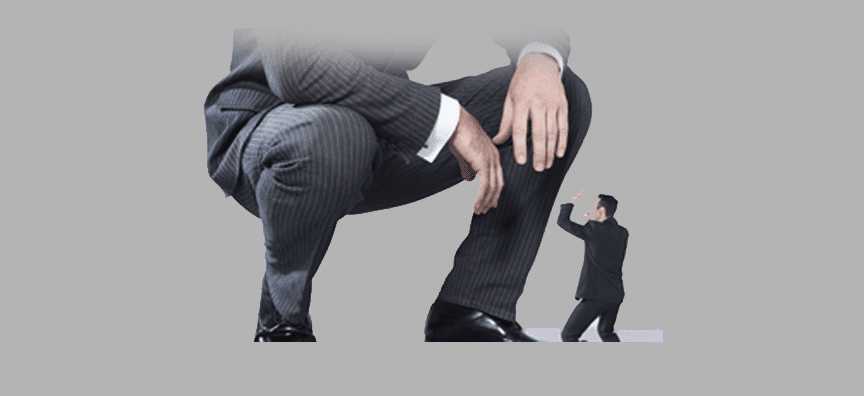Respect for competition rules is one of the fundamental principles of the European Union. The European single market cannot be achieved without a competition policy that guarantees free access to the market for all. The Treaty on the Functioning of the European Union aims to prevent restrictions and distortions of competition within the internal market. Despite these rules aimed at ensuring the proper functioning of the internal market, there is evidence that some players continue to engage in anti-competitive behaviour. The European Commission, as guardian of the EU Treaties, is responsible for sanctioning players who do not respect the competition rules in the European market.
A very hot issue for the commission
This competition regulation, guaranteed by the Commission, applies directly in all EU Member States and prohibits certain behaviour that could harm the proper functioning of the internal market, such as agreements aimed at fixing prices, allocating customers in the market or limiting production. The second major prohibition is the abuse of a dominant position, which consists of behaviour by a company in a dominant position on a market which is designed to eliminate other players from the market or to deter others from entering the market, thereby distorting competition.
In 2018, the giant Google was criticised by the Commission for engaging in such behaviour. The company was fined €4.34 billion for illegal practices regarding Android mobile devices in order to strengthen the dominant position of its engine. The company was forcing mobile device manufacturers to install its applications. Margrethe Vestager, European Commissioner for Competition Policy, said: “Google is using Android as a vehicle to consolidate the dominant position of its search engine”. This behaviour has consequences in many areas, “These practices have deprived its competitors of the possibility to innovate and compete on their merits. They have deprived European consumers of the benefits of effective competition in the important market for mobile devices. This practice is illegal under the European Union’s rules on anti-competitive practices.
This practice used by Google in order to strengthen its dominant position on the market is considered as an anti-competitive practice and sanctioned as such. The CJEU has had the opportunity to define the concept of a dominant position a few times, starting dating back in 1978 : “To a position of economic strength enjoyed by an undertaking which enables it to prevent effective competition being maintained on the relevant market by giving it the power to behave to an appreciable extent independently of its competitors , customers and ultimately of its consumers . ” – Judgment of the Court of Justice of 14 February 1978, United Brands v Commission. This definition by the European judges remains very general and does not really answer our questions: what acts can be sanctioned on the basis of abuse of a dominant position? The answer is left to the national authorities.
The Irish law : a packed yet very efficient system
In application of European law, Irish law prohibits the abuse of a dominant position. Competition in Ireland is, of course, regulated by European provisions but also by the Competition Act de 2002 (CA 2002), latest amended in 2017, and by the Competition and Consumer Protection Act de 2014. Both act mainly give the government itself the ability to attack law-breaking companies, allowing court to judge in very fast trials. However, the Commission for Communications Regulation , a mainly bureaucratic institution, also has powers to enforce Articles 4 and 5 of the Competition Act and Articles 101 and 102 TFEU. It worth noting that the CCPC may not grant injunctions or interim measures , which function is confined to the courts, making it a mainly prosecutorial body.
The article 5 of the CA 2002[1] prohibits conduct by one or more undertakings which amounts to an abuse of a dominant position in a market if it is capable of affecting trade in Ireland. In order to be characterised, the dominant position must exist in Ireland and the effect on trade must occur in Ireland, yet the abuse may take place outside Ireland. This means that a Spanish company, which has no premises in Ireland, can be punished for abuse of dominance in Ireland if its action in Ireland would affect trade in Ireland. There is no exemption from the abuse of dominance prohibition under Irish law. In addition, both the High Court, Court of Appeals and Supreme Courts have given extremely broad definitions in cases such as in the HB/Mars/Ice-cream (This litigation started in Ireland and culminated in the Court of Justice of the European Union (CJEU) judgment in Case C-344/98, Masterfoods Ltd. v. HB Ice Cream Ltd., 2000 E.C.R. I-11369.) .
Abuse has been alleged and mostly found to exist in regard to issues such as :
- discriminatory pricing, (Island Ferries Teoranta v. Minister for Commc’n, Marine & Nat. Res. [2011] IEHC 388)
- excessive pricing, ( Case COM/107/02—TicketMaster Ireland, Enforcement Decision E/06/001 (Sept. 26, 2005),)
- margin squeeze,
- predatory pricing, (COM/005/03—Drogheda Indep. Co. Ltd., Enforcement Decision E/05/001 (Dec. 7, 2004))
- rebates, (Case COM/13/005—An Post, Enforcement Decision E14/001, part 5 (Oct. 30, 2014),. motivated by a previous EU principle decision, C-497/99 P, Irish Sugar plc v. Comm’n, 2001 E.C.R. I-5333.)
- refusal to supply (by a open note)
- and tying. (Competition Auth. v. O’Regan [2007] IESC 22 (Supreme Court); and Blemings v. David Patton [2001] 1 IR 385 (High Court).)
The Irish regime creates no provision for non-economic (or, more precisely, non-competition) factors (e.g., public policies favouring preservation of multiple market participants or protection of small businesses). This is consistent with Irish competition law in general, which is entirely focused on competition and unaffected by other factors (except in the case of media and newspaper mergers). Irish anti-abuse of dominance laws have not been widely applied. As a result, they remain underdeveloped in the Irish context. There have been relatively few cases over the nearly three-decade lifespan of the rules—many of the cases have involved alleged dominance (which is sometimes not established) in the case of State entities. The fact that the (now) CCPC’s first major case about dominance failed (the Competition Authority v. O’Regan and others case [2007] IESC 22 (Supreme Court).) does not inspire private litigants to bring cases, and thus more public enforcement is needed to encourage private enforcement.
The French law : a classic continental position
Exactly as Irish law, the French system also sanctions for abuse of dominant position, but provides a more precise definition than that laid down by the CJEU. The article L420-2 du Code de commerce states that « It is prohibited, under the conditions provided for in in the article L. 420-1,the abuse by an undertaking or group of undertakings of a dominant position in the internal market or in a substantial part of it. […] The abuse by an undertaking or group of undertakings of a position of economic dependence of a customer or supplier on the undertaking or group of undertakings shall also be prohibited where it may affect the functioning or structure of competition. ».
The French definition is of course broader, as it directly focuses on both consumers and suppliers But how do you know when a company is really in a dominant position? Article L420-2 of the French Code du Commerce lists a series of acts that can constitute an abuse of a dominant position: refusal to sell, exploitation of a state of dependence, etc. …. However, this list is by no means exhaustive, and the European Commission has published a guide to implementing the article 102 du TFUE[2] sanctionning anti-competition practices. It provides in particular that factors such as the geographical area and the existence of barriers to market entry must be taken into account in order to consider that there is an abuse of a dominant position. Secondly, there can be a dominant position without abuse, and it is therefore this notion that must be characterised so that the actions can be sanctioned. The abuse may, for example, consist of a significant reduction in prices in relation to competitors, which has the consequence of reducing the market share of competitors and of creating new barriers to entry, thus preventing the arrival of new companies on the market.
But the situation of abuse of a dominant position is not so simple to characterise. At what stage can it be considered that the actions are sufficiently serious to constitute an abuse of a dominant position? The French Court of Cassation recalled this in a decision of 15 July 1992: only an appreciable harm to competition can characterise an anti-competitive practice. Therefore, only abuses of economic dependence that are sufficiently significant can be sanctioned. Moreover, the infringement can only be sanctioned if a causal link between the situation of economic dependence and the offending practice can be demonstrated. If both the existence of harm and the direct link are underlying in European jurisprudence in matters of abuse of dominant position, they are explicit in French law. For instance, a state of dependence must lead to the abuse in French law : a company must first be in a situation of dependence and then it will take advantage of this situation to obtain even greater benefits, for which abuse will be found.
Lack of link in French law between monopolies and abuse of dominance
Unlike Irish case law, which gives a direct link between monopoly and abuse of dominant position, the French case law do not link the two. Abuse of a dominant position is the act that is sanctioned, and it can lurely lead to a monopoly, which is a market situation in which a single seller faces a multitude of buyers. However, one has to be careful: not all monopolies arise from situations of dominance. Monopoly is explained by the existence of “barriers to entry”, which means that new companies cannot enter the market to provide the service in question / sell the same products. These barriers to entry can be set by the companies themselves, as in the case of abuse of a dominant position. But another hypothesis is the presence of barriers that are inherent to the activity carried out. The first hypothesis is the existence of high fixed costs due to the size of the market, expensive infrastructures, high research and development costs, etc., which may prevent new players from entering the market because without significant financing they cannot start their activity. High fixed costs are a characteristic of network economies such as electricity where, in order to enter the sector, it is necessary to be able to build power stations, ensure distribution etc., which implies very high costs and is a brake on the entry of new players in this market.
The second category of barriers to entry is the existence of economies of scale in certain industries with increasing returns. Economies of scale refer to the fact that the unit production cost of a product or service decreases as output increases. These economies of scale do not allow small companies to be profitable, so they block them from entering the market. This is for example the situation Google is in: the company invested many years ago in hardware and was able to grow and establish itself allowing its turnover to increase considerably compared to the financial requirements to generate these profits. If a company were to enter the market today, it would have to face extremely high fixed costs that would not allow it to be profitable compared to Google.
A third hypothesis concerning barriers to entry, which can lead to a monopoly, is the state: we speak of legal monopolies. These are monopolies that are authorised and regulated by law. They aim to restrict competition in certain markets in order to pursue strategic or regional planning objectives or to guarantee a public service. How can a monopoly be compatible with the competitive requirements imposed by the European Union? The combination of these two requirements in the European Union is complex. Since the Single European Act of 1986, the questioning of public monopolies has appeared in Community law. It is from this treaty that many sectors previously entrusted to national monopolies have been opened to competition. For example, in Italy, the Mammi law was passed in August 1990 to abolish the RAI (radiotelevisione Italia) monopoly, allowing access to television to be opened up to private groups. And the end of state monopolies has multiplied in many EU member states with the major role it plays in our economy. The European Commission is not clearly opposed to public monopolies but considers that these services must be provided efficiently and at low cost. The risk for a public company not subject to competition is that it will charge too high prices, which is why the European Commission considers that any activity should be subject to free competition unless it is incompatible with it.
The European Law : evolving but not yet fixed as to public monopolies
Article 37 of the Treaty on the Functioning of the European Union provides a framework for these public monopolies, stating that “Member States shall arrange national monopolies of a commercial character in such a way as to ensure that no discrimination regarding the conditions under which goods are procured and marketed exists between nationals of Member States”. This implies that Member States have a duty to provide these services fairly and in accordance with the general interest. The Court of Justice of the European Union is there to supervise the States and to sanction the bad management of their monopoly. For example, in the 2010 Stoss and Carmen Media Group judgments, the European judges ruled that the public monopoly on sports betting in Germany did not ensure that the general interest objectives invoked by the German legislator were achieved in a consistent and systematic manner. This decision was justified by the fact that the monopoly holders were running intensive advertising campaigns and that the competent authorities were at the same time pursuing policies to encourage participation in other games that could lead to a high risk of addiction for players.
Despite strict rules governing legal monopolies, they are set to disappear due to the influence of European ideas. One of the major monopolies of the French state ended in 2020: the railway market. The aim was to allow private operators to run their trains on the rail network. This reform was prompted by the European Union to improve service performance. However, the situation is now more complex as there is little competition to the SNCF. This can be explained in particular by the very high costs of entering the market. This raises the problem of how to encourage companies to invest in this sector, a situation that the global pandemic has not improved.
Finally, it can be seen that the European Union makes it a point of honour to ensure that competition in the market is respected, but the situation is not so simple and the abuse of a dominant position can happen quickly, so it is important, as a single player in the market, to ensure that it does not take unfair advantage of its situation.
- « (1) Tout abus par une ou plusieurs entreprises d’une position dominante dans le commerce de tous biens ou services dans l’Etat ou dans toute partie de l’Etat est interdit.
(2) Sans préjudice de la généralité du paragraphe (1) , un tel abus peut notamment consister en :
(a) imposer directement ou indirectement des prix d’achat ou de vente déloyaux ou d’autres conditions commerciales déloyales,
(b) limiter la production, les marchés ou le développement technique au préjudice des consommateurs,
(c) appliquer des conditions différentes à des transactions équivalentes avec d’autres parties commerciales, les plaçant ainsi dans une situation de désavantage concurrentiel,
(d) subordonner la conclusion de contrats à l’acceptation par d’autres parties d’obligations supplémentaires qui, par leur nature ou selon l’usage commercial, n’ont aucun rapport avec l’objet de ces contrats. » ↑
- Article 102 TFUE : Est incompatible avec le marché intérieur et interdit, dans la mesure où le commerce entre États membres est susceptible d’en être affecté, le fait pour une ou plusieurs entreprises d’exploiter de façon abusive une position dominante sur le marché intérieur ou dans une partie substantielle de celui-ci.
Ces pratiques abusives peuvent notamment consister à :
imposer de façon directe ou indirecte des prix d’achat ou de vente ou d’autres conditions de transaction non équitables,
limiter la production, les débouchés ou le développement technique au préjudice des consommateurs,
appliquer à l’égard de partenaires commerciaux des conditions inégales à des prestations équivalentes, en leur infligeant de ce fait un désavantage dans la concurrence,
subordonner la conclusion de contrats à l’acceptation, par les partenaires, de prestations supplémentaires qui, par leur nature ou selon les usages commerciaux, n’ont pas de lien avec l’objet de ces contrats. ↑










